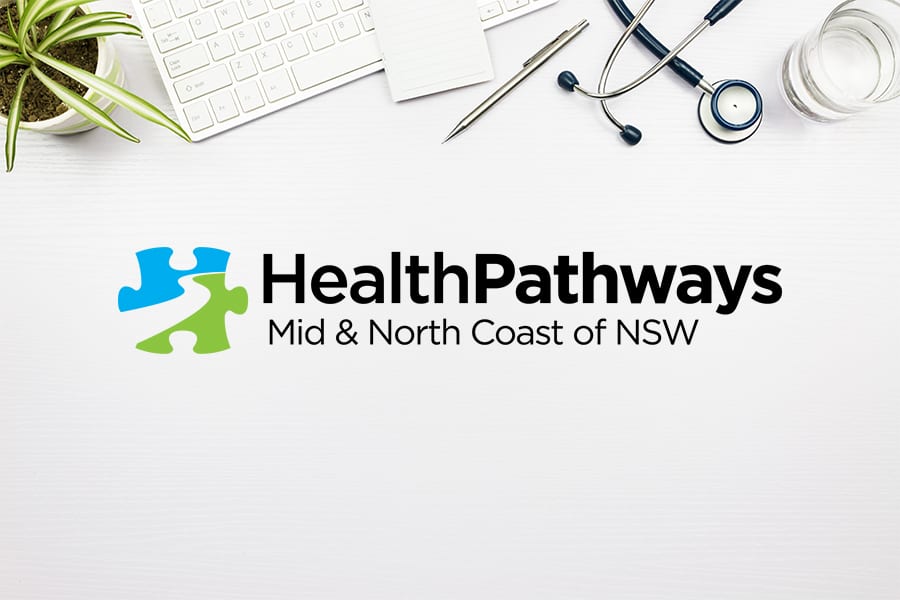By Dr Renee Strazzari
We hear often that the COVID-19 pandemic and its global impact is unprecedented. It’s true that fundamentally COVID-19 has changed the whole health care ballgame and with so many changes it can be hard to keep up. That’s why I strongly encourage healthcare professionals to take advantage of the Mid and North Coast HealthPathways.
In March this year the number of HealthPathways users increased by 50 per cent to around 1,500. The time that users are actively engaged on the website has also nearly doubled from February to March. Hopefully usage will continue over the long term once more clinicians see the benefit of this valuable region-wide asset.

A ‘one-stop shop’
HealthPathways is designed to be used at the point of care. It enables us all to be on the same page when looking after a patient. The pathways are primarily for general practitioners, but are also available to hospital specialists, nurses, allied health and other health professionals.
Information is current and clinician led
Importantly, our resources are regularly updated. Regarding COVID-19, they include information on local changes to the health system, support around telehealth, and details on requesting services and supplies – such as clinics, testing and access to personal protective equipment.
Our pathways evolve as our health system does. All changes are prepared and endorsed by a team of GPs working at NCPHN and LHD specialists, nurses and allied health professionals who contribute on an as-needs basis.
Guiding and informing
There’s guidance on preparing your general practice to respond to COVID-19 and clinical guidance for assessing and managing patients affected by the disease. Also helping you to stay informed is a wealth of curated local, national and international advice.
Local and relevant
Some of the pathways are locally edited and relate specifically to matters such as referrals, clinics and LHD services and information. Other pathways are state and nationally run and look at guidelines as they’re released.
Click here to visit the Mid & North Coast HealthPathways website.
There’s a single username (manchealth) and password (conn3ct3d) for all health professionals.
We’re keen to hear your thoughts, particularly if information has changed or is missing. Click on the ‘Send Feedback’ button, which is at the top of each pathway page.
Dr Renee Strazzari is a general practitioner based in Coffs Harbour and is the clinical lead for the Mid North Coast HealthPathways team. She also sits on the Coffs Harbour Clinical Council and RACGP Rural Council as the NSW & ACT representative. Her other roles are as the HealthPathways NSW & ACT regional clinical advisor and director of the UNSW Mid North Coast Regional Training Hub.



